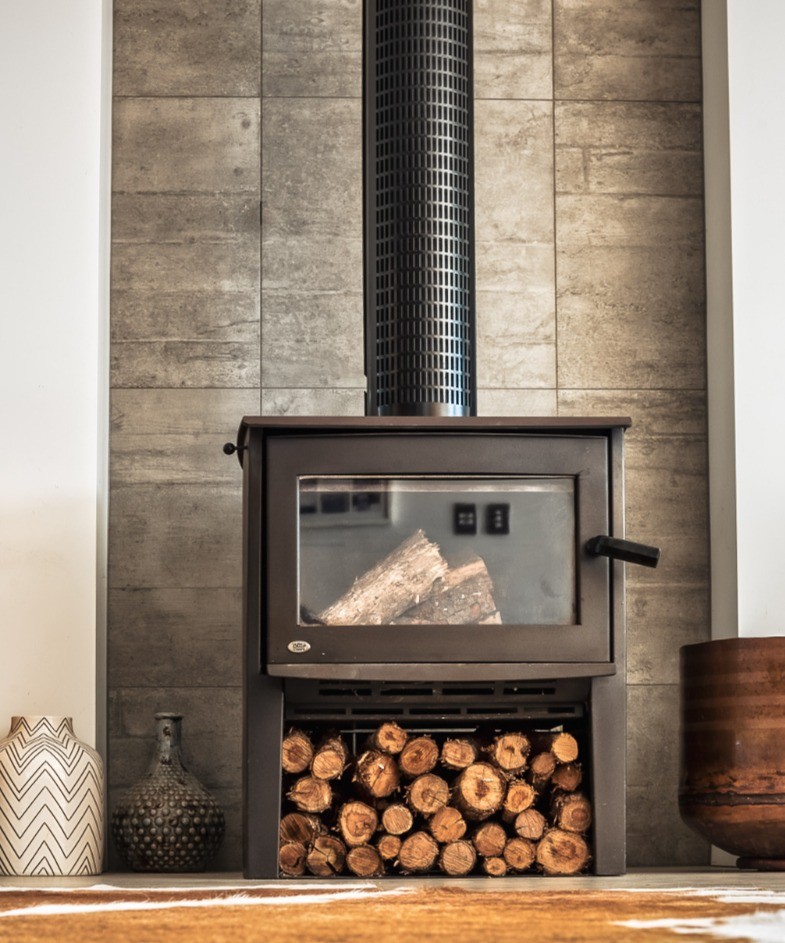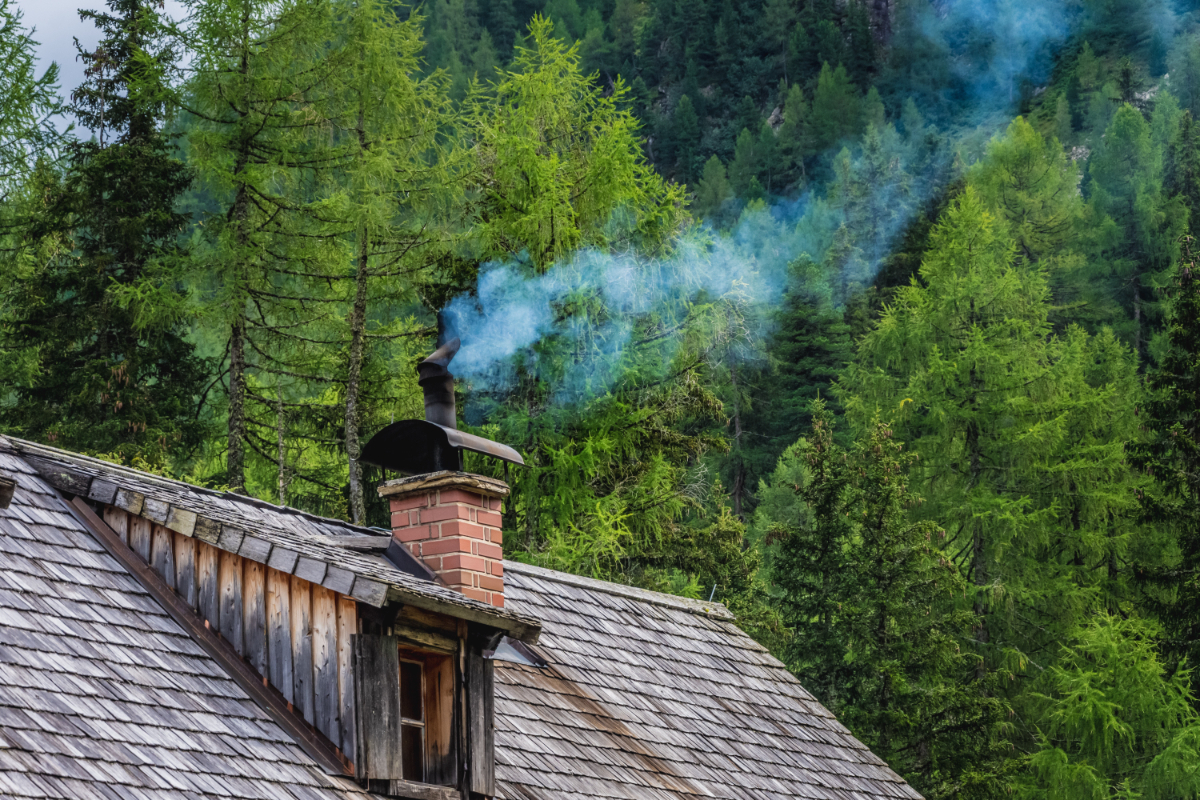How do you know if your chimney needs to be cleaned? Find out what are the signs that your chimney needs cleaning.
No other feeling can beat cosying up to your fireplace during a chilly winter night and embracing the warm glow of the flame. For centuries fireplaces have been considered the centrepiece for many homes; a place to bring families together, create a romantic ambience for date night, or find peace in your own company.
On the other hand, a dirty, smelly and inefficient fireplace can ruin the whole experience. In turn, the fireplace may become neglected, and existing damages are likely to worsen with no active use or maintenance investigations. To help you keep on top of fireplace maintenance, we break down the obvious signs that your chimney will need cleaning, and give guidelines for how often cleaning should be done.
Simply put, your chimney needs to remain clean, or starting a fire will feel like a chore. A great way to ensure you keep on top of chimney maintenance is to keep a logbook with the inspection dates, cleaning dates and any noticeable progressive weak spots that require attention.
Does Your Chimney Need To Be Cleaned?
Making sure your fireplace is clean and ready to go reduces the effort required to start a fire, making the entire process more enjoyable and satisfying.
A major part of this preparation is to ensure regular maintenance and cleaning of the chimney; this prevents a multitude of problems.
professional chimney sweep team will provide comprehensive inspections and cleaning services for your fireplace and chimney.
Having a skilled worker complete the task ensures that one annual inspection and clean and sweep is satisfactory. Furthermore, professionals can offer solutions catered to your needs and the fireplaces' demands.
Below we discuss the key signs that your chimney needs a clean, with problematic factors such as animal nests and creosote buildup listed.

Signs That Your Chimney Needs Cleaning:
Various warning signs highlight the need for a chimney clean. Some cues to look for during inspection include; poorly burning fires, difficulty igniting fuel, foul odours, poor airflow, oily spots on fireplace walls and animal nests. Each influencing factor is discussed in detail below;
If you spot a black and oily tar-like substance building up on the walls of your fireplace, then it's time for a clean!
This toxic substance can build up to the top of the chimney, blocking the tunnel and restricting airflow. Reduced airflow can cause fires to burn colder and ineffectively.
A clogged chimney can be spotted if you encounter various problems when attempting to ignite the fire. Similarly, this can portray a malfunctioning fireplace damper.
These issues both prevent the fire from receiving a sufficient supply of oxygen and mean it doesn't burn effectively and can waste fuel.
If you start to smell a campfire-like odour coming from the fireplace, then you should immediately arrange an inspection and clean. It is likely to be Creosote.
Creosote is a dark brown oil that comes from the incomplete combustion of firewood used. Although the odour may smell pleasing, it indicates that your chimney has a buildup. These buildups can catch fire and lead to serious damage to your home.
Spotting animal nests in your chimney is vital for human safety and the efficiency of the fireplace. Animal nests easily block the chimney, reducing airflow, weakening the fire and presenting a further fire risk.
The most common types of animal nests found are often from birds, with squirrels also choosing to nest their young in chimneys. Bird nests at the top of a chimney can block vents, create noise pollution and shower your home in feathers and bird droppings.
It's relatively easy to spot an animal nesting in your chimney; from the noise to the poorly burning fire, there are plenty of indications.
A clear indication that your chimney requires cleaning is reduced volumes of smoke rising up the chimney. If smoke used to rise quicker or more efficiently, then you may have a Creosote buildup or animal nesting.
Check it out to prevent further smoke damage to the home, and reduce the risk of fire catching.
Simply put, fires need oxygen to ignite and thrive. A clogged-up, dirty chimney will make lighting firewood more difficult, as the oxygen it needs to ignite will struggle to reach the fuel.
Falling chunks of soot or creosote is a clear sign that there is a buildup in your chimney, and it needs a clean ASAP. Don't wait any longer, as falling materials can catch fire and lead to home damage.
A black damper only means one thing... time for a deep clean. Without a properly working clean damper, the fireplace will have considerable heat loss and draughts, meaning the fire will burn inefficiently, and fuel efficiency decreases. Furthermore, it can enable a fire to spread and lead to further home damage.
Although many people think their fireplaces are letting in a breezy draught, when it is quite the opposite; in fact, the air flows up the chimney not down.
When close by to the fireplace, you should be able to feel this upwards flow of air, even without a fire lit, as long as the damper is open and clean. No clear wind flow, even on windy days, is an obvious sign a chimney and/or damper clean is needed.
How Often Should You Get Your Chimney Cleaned?
Chimneys must have a clear passage for airflow, meaning buildups should be dealt with immediately. Fre passage is necessary for the fire to burn efficiently, and to allow passage of dangerous combustion gasses.
Periodic sweeping will remove bird nests, cobwebs, soot, creosote and other blockages, as well as increase the efficiency of the fireplace. There are a few associations in the UK dedicated to Chimney safety and guidelines. Some notable groups include;
- ESCHFOE, the European Federation of Chimney Sweeps
- The Federation of British Chimney Sweeps (FBCS)
- The National Association of Chimney Sweeps Ltd
According to The National Association of Chimney Sweeps Ltd, how frequently you need to clean your fireplace will depend on a few factors. These include; Fuel type, Appliance, Duration of use, Moisture content, and the Type of Chimney.
A professional chimney sweep will advise you on how often you should book a sweeping appointment. Chimney cleaning guidelines are stated below, although the specific cleaning demand can vary.
- Smokeless Fuel: At least once a year
- Wood: Quarterly when in use
- Bituminous Coal: Quarterly when in use
- Oil: Once a year
- Gas: Once a year
More specifically, the Chimney Safety Institute of America (CSIA) suggest that if there's a creosote buildup of more than 1/8″, it's time for a chimney clean. Homeowners often schedule a chimney clean just before the colder months to ensure clear airflow and full efficiency when burning during frosty mornings and evenings.
Across-the-board professionals recommended that all chimneys get cleaned and swept at least once a year to prevent buildups, blockages and further risks. Chimney cleaning and sweeping can be completed by yourself following advice online or by a professional service.
Moreover, a home inspector can be called to ensure your fireplace is up to code and safe for use.
Do you have a period fireplace which needs repair or restoration? If you live in the Hastings and East Sussex area, our expert antique fireplace restoration services can help.
